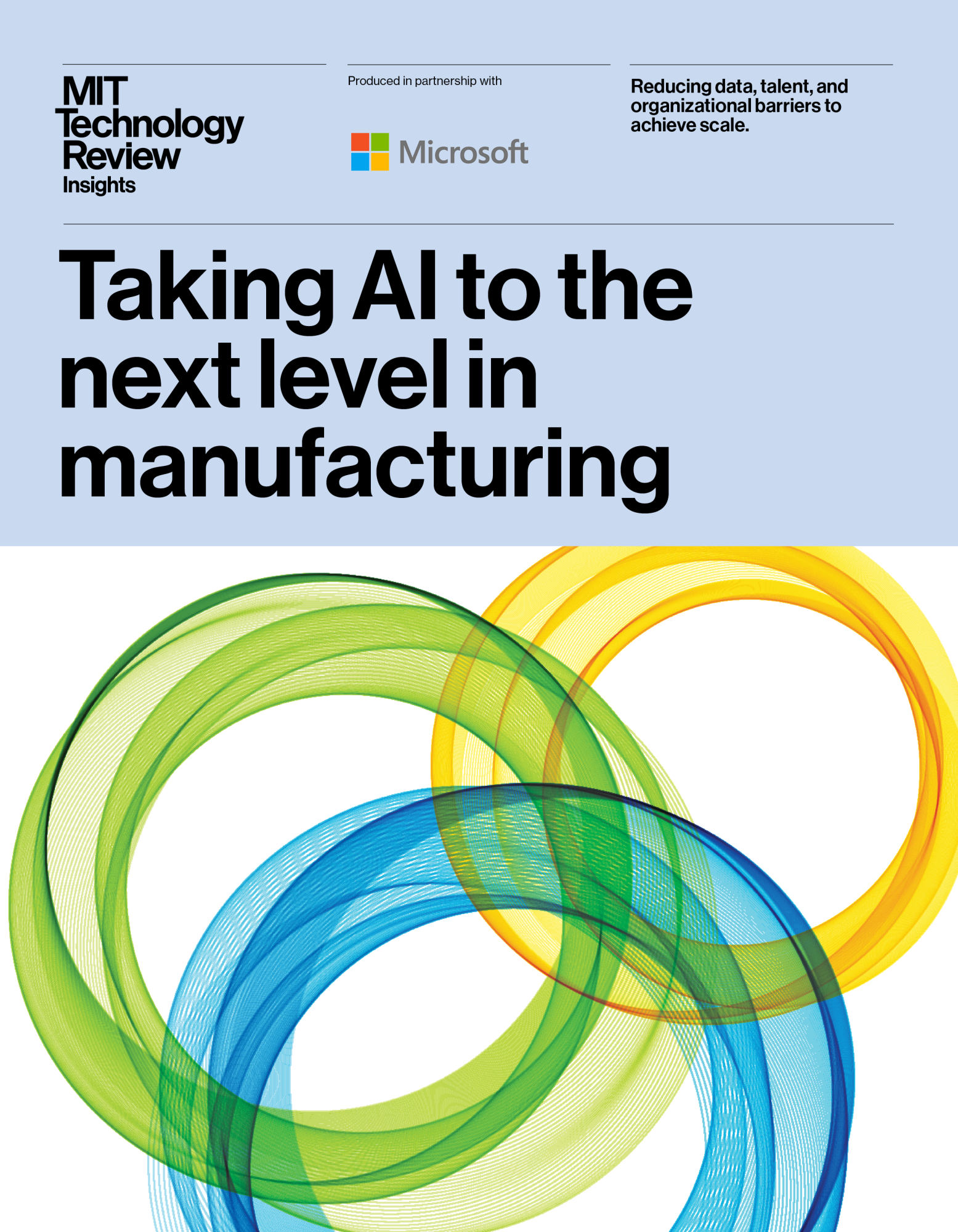AI is generating excitement in manufacturing. Leaders see its potential in innovation, efficiency, maintenance, and security, aiming to boost spending significantly. Challenges include talent, skills, and data constraints. Key findings reveal specific AI gains in engineering, design, and factory operations, but scaling can stall without proper data foundations. Fragmentation must be addressed for AI to scale.

“`html
The Impact of AI on Manufacturing
Few technological advances have generated as much excitement as AI. In particular, generative AI seems to have taken business discourse to a fever pitch. Many manufacturing leaders express optimism: Research conducted by MIT Technology Review Insights found ambitions for AI development to be stronger in manufacturing than in most other sectors.
AI’s Role in Manufacturing
Manufacturers rightly view AI as integral to the creation of the hyper-automated intelligent factory. They see AI’s utility in enhancing product and process innovation, reducing cycle time, wringing ever more efficiency from operations and assets, improving maintenance, and strengthening security, while reducing carbon emissions. Some manufacturers that have invested to develop AI capabilities are still striving to achieve their objectives.
Key Findings from the Study
This study from MIT Technology Review Insights seeks to understand how manufacturers are generating benefits from AI use cases—particularly in engineering and design and in factory operations. The survey included 300 manufacturers that have begun working with AI. Most of these (64%) are currently researching or experimenting with AI. Some 35% have begun to put AI use cases into production. Many executives that responded to the survey indicate they intend to boost AI spending significantly during the next two years. Those who haven’t started AI in production are moving gradually. To facilitate use-case development and scaling, these manufacturers must address challenges with talents, skills, and data.
Practical AI Solutions and Value
Talent, Skills, and Data Constraints: Manufacturers face challenges in scaling AI use cases due to a deficit of talent and skills, inadequate data quality and governance, and insufficient access to cloud-based compute power. Addressing these constraints is crucial for successful AI implementation.
AI Spending and Expectations: The largest manufacturers are increasing AI spending and have high expectations for AI’s impact on engineering, design, and factory operations. Identifying specific AI gains for manufacturing functions and aligning AI tools with business needs are key to maximizing the value of AI investments.
Data Foundations and Scaling: Inadequate data quality, weak data integration, and governance issues hamper AI use-case development. Manufacturers must focus on improving data foundations to ensure successful scaling of AI initiatives.
Fragmentation and Modernization: Modernization of data architecture, infrastructure, and processes is essential to support AI. Addressing fragmentation and improving interoperability of data systems are critical priorities for successful AI implementation.
Practical AI Solutions: To evolve with AI and stay competitive, manufacturers should identify automation opportunities, define measurable KPIs, select AI solutions aligned with their needs, and implement AI gradually. For AI KPI management advice and continuous insights into leveraging AI, connect with us at hello@itinai.com.
Spotlight on a Practical AI Solution
AI Sales Bot from itinai.com/aisalesbot: Designed to automate customer engagement 24/7 and manage interactions across all customer journey stages, this AI solution redefines sales processes and customer engagement. Explore solutions at itinai.com/aisalesbot.
“`
List of Useful Links:
- AI Lab in Telegram @aiscrumbot – free consultation
- Taking AI to the next level in manufacturing
- Artificial intelligence – MIT Technology Review
- Twitter – @itinaicom



























